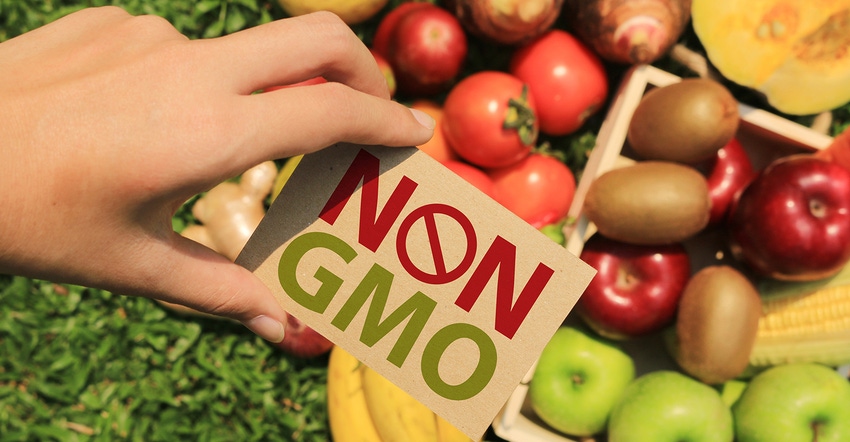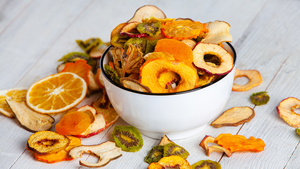A legal perspective on organic vs. non-GMO
Is there a difference between organic and non-GMO?

More people these days are striving to eat “cleaner” and looking for manufacturers to be more transparent about ingredient sourcing. Not surprisingly, consumers look to products labeled “organic” or “non-GMO” (genetically modified organism) as a means of achieving their goal of cleaner eating.
Is there a difference between organic and non-GMO and, if so, which one will help consumers further their goal of cleaner eating?
GMOs are organisms in which the genetic material, or DNA, has been altered or modified in some way that does not occur naturally. A food product that contains genetically modified material is referred to as a bioengineered food under the National Bioengineered Food Disclosure Standard (NBFDS) (7 CFR 66.1).
Starting in 2022, NBFDS will require companies to disclose the presence of bioengineered material in food products. NBFDS also provides that, in the case of a food certified under the National Organic Program (NOP), the certification is considered sufficient to make a claim regarding the absence of bioengineering in the food. Therefore, by law, food products that are certified organic can be labeled as “non-GMO.” Aside from that edict, does the USDA Organic seal guarantee that certified organic products are GMO-free?
The use of GMOs is an “excluded method” and is prohibited in the production and handling of organic products (7 CFR 205.105). This means farmers are not allowed to grow crops from GMO seeds, animals cannot eat GMO feed, and producers cannot use GMO ingredients. This prohibition extends to all organic categories, including products labeled as “100% Organic,” “Organic,” and “Made with Organic …” and extends to all ingredients, both organic and non-organic, contained in such products. To be clear, all non-organic ingredients allowed in the 5% or 30% non-organic portion of organic-certified products must be non-GMO.
Certified organic farms and facilities must develop and follow site-specific and approved organic system plans that ensure compliance with NOP requirements, including the exclusion of GMOs, and organic producers and handlers must undergo annual third-party inspections and reviews. However, NOP auditors do not necessarily routinely test most ingredients or products for GMOs unless they suspect contamination.
What if there is inadvertent cross-contamination? Since organic certification is process based, if all aspects of an organic production and handling system plan are followed, the presence of detectable GMO residue alone does not constitute a violation of NOP regulations. Certifying agents may test when there is reason to believe an excluded method is used in the production or handling of an organic product. If detected, the certifying agent will work with the organic producer to identify the source and implement preventive measures to avoid contact with GMOs in the future.
As previously mentioned, the use of GMOs is prohibited in all ingredients used in products labeled as “organic” and “made with organic …,” including non-organic ingredients that are allowed in such products. The National List, however, includes ingredients considered high risk such as cornstarch and soy lecithin, as well as other ingredients that may be produced using GMOs.
Organic certifying agents require non-GMO declarations from the producer or handler which, depending on the certifier and the ingredient, may require that the ingredient not be genetically modified and GMOs not be used in the production of the ingredient, or for some non-agricultural products, may require that the ingredient not contain any detectable GMOs. Because this is not specifically addressed in the NOP regulations, there appears to be some latitude in how certifying agents ensure non-organic ingredients in organic products are non-GMO.
Yet “organic” means so much more than “non-GMO.” Organic crops cannot be grown with synthetic fertilizers, pesticides or sewage sludge. Organic livestock must eat certified organic feed and cannot be treated with hormones or antibiotics. Products that display the organic seal are prohibited from containing artificial colors or flavors and other synthetic ingredients.
Products certified as “non-GMO” are products verified to exclude GMO ingredients. The Non-GMO Project is a non-profit organization that has created its own set of standards to verify ingredients in products labeled with the Non-GMO Project Verified seal of approval are non-GMO. The organization is laser-focused and, like the NOP, is a very robust program. Unlike the NOP, testing is a very integral part of the Non-GMO Project that requires testing on all ingredients deemed “high risk” inputs, and for low-risk ingredients, requires a thorough review of ingredient suppliers and specification sheets to confirm non-GMO status. But this does not mean products carrying the Non-GMO Project Verified seal are GMO-free. Under the program’s standards, products labeled as non-GMO can still have up to 0.9% genetically modified material.
Thus, organic means non-GMO, but non-GMO does not mean the product has been organically produced. Organic has a far broader set of defined standards, beyond just non-GMO, dictating how a food must be produced. Both categories have very rigorous verification programs, but neither will guarantee a product is free of GMOs. This simply is not possible given the inherent risk of at least some cross-contamination in the agricultural and supply chain. However, consumers can have confidence in both seals, and trust they are doing the best they can to avoid GMOs. In the case of products carrying the organic seal, consumers can have confidence their products are produced according to stringent process controls.
Jacqueline Kuler, senior counsel at Amin Talati, assists companies in complying with the various legal requirements applicable to the manufacture, marketing and distribution of foods, dietary supplements, drugs, medical devices and cosmetics. She works with companies in preparing legally compliant labels and marketing materials and advises in all matters relating to the manufacture and distribution of FDA-regulated products.
About the Author(s)
You May Also Like






